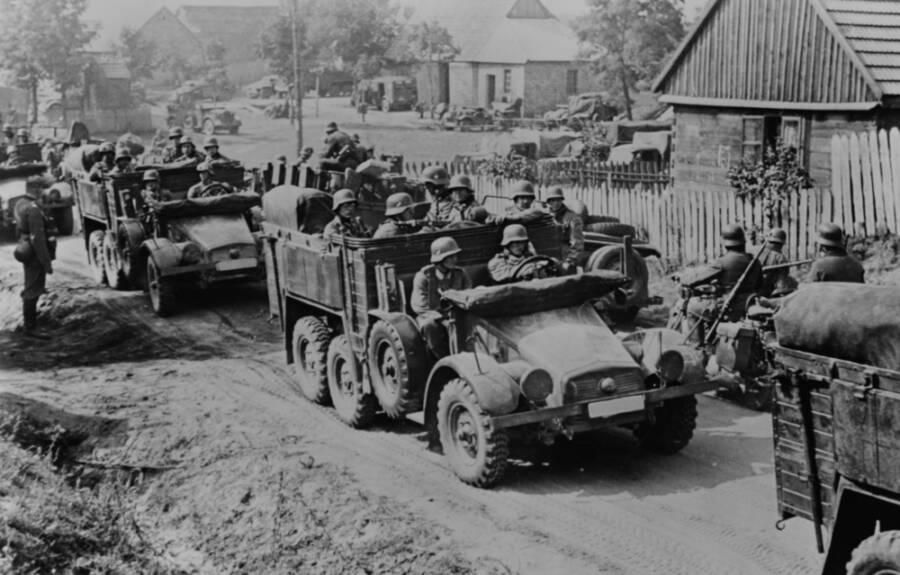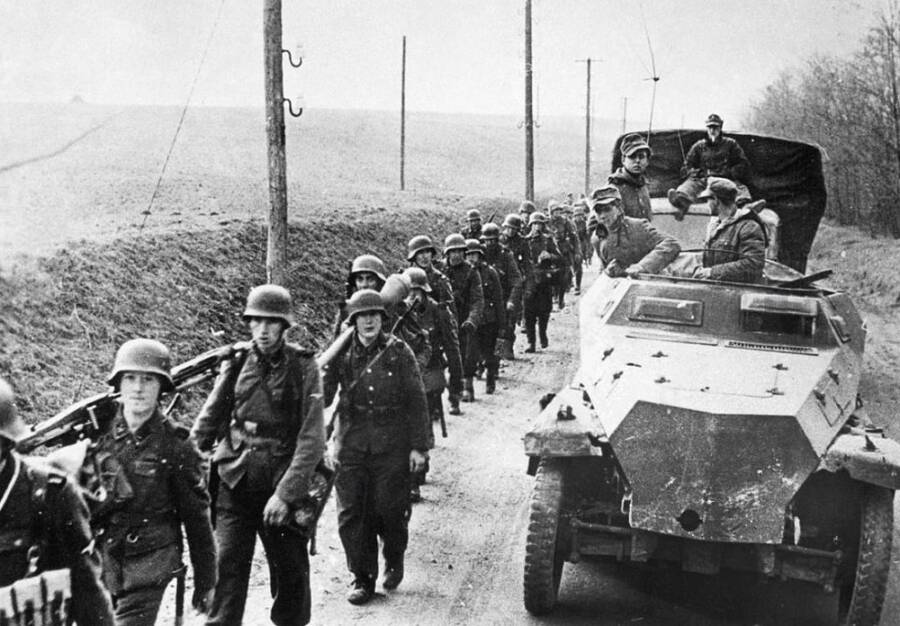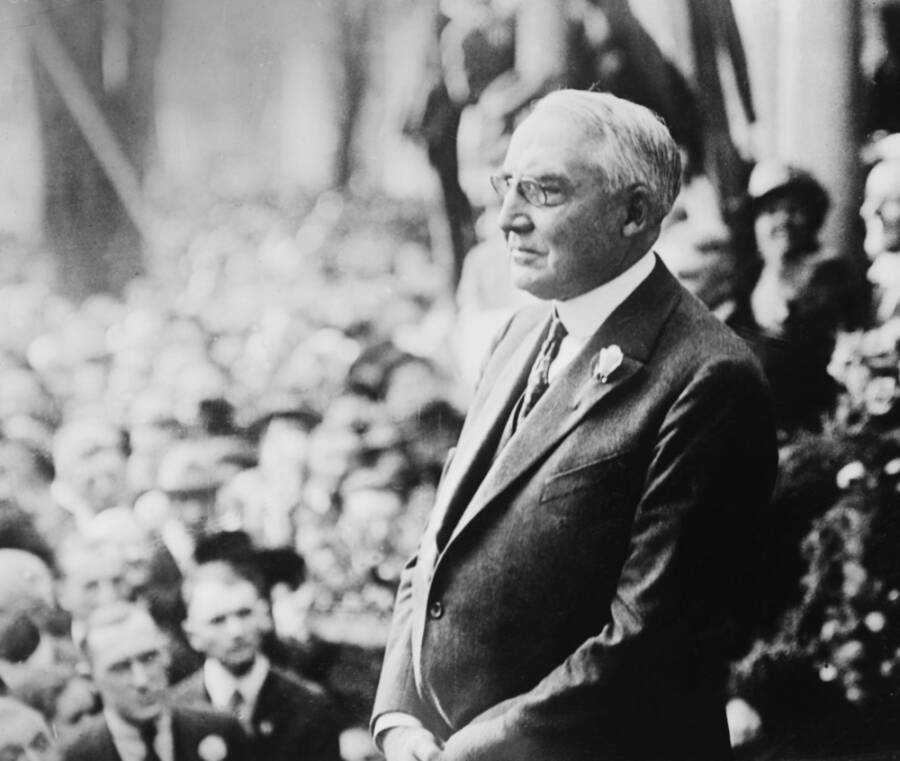The history of drug use in Nazi Germany:
In addition to its extreme ideologies and violent reputation, the Nazi regime was also characterized by its disturbing drug use. Adolf Hitler and his troops both used drugs to power their war machine and stay in power.
If you’re following us, then you know that since I am part of the Historical Files team, I am an active writer here. You also know that many times I approached the Nazi regime topic, and even though I wrote more than 10 articles about it, there is always something new and interesting that I find about it; it would be a pity not to share it with my readers.
That’s why this article, based on the lecture of the book Blitzed: Drugs in the Third Reich written by Norman Ohler, will focus mostly on the drug use in Nazi Germany by both Hitler and his army, how the substance abuse made them feel, and how much of a dependence it became.
The drug use in Nazi Germany was not a coincidence; rather, it was a component of a planned system run by pharmaceutical companies, medical professionals, and military leaders.

…Was Pervitin the first drug used by the Nazis?
During World War II, Nazi soldiers often got exposed to the effects of drugs. Military rations began to include drugs like methamphetamines to keep soldiers alert, focused, and combative. These substances were thought to be instruments to improve performance, enabling soldiers to withstand long shifts, fierce combat, and stressful situations.
Widespread was the use of methamphetamine, also referred to as crystal meth. Before the successful 1940 invasion of France, millions of Wehrmacht soldiers were given pills containing the medication Pervitin.
But before being used as a drug, Pervitin was marketed as a magic pill for alertness and an antidepressant. Otto Ranke, a military physician, tested Pervitin on ninety college students before concluding that the medication would aid Germany in winning the war.
Same as meth, but according to historians, probably a bit better, Pervitin allowed the Wehrmacht soldiers to march many more miles without stopping and remain awake for days.
Although the goal of these medications was to increase endurance and combat readiness, they also caused serious addiction, long-term psychological effects, and side effects like hallucinations. Without the stimulants, many soldiers were unable to function, which led to a cycle of dependence.
Hitler never took Pervitin
Not only were soldiers under the influence of drugs, but Adolf Hitler himself was heavily dependent on a variety of substances. The main, let’s call him, supplier of these medications was Dr. Theodor Morell, his doctor, who gave the Führer a combination of injections and pills.
Hitler never used Pervitin, but it would have been one of the few drugs he didn’t experiment with. Ohler claims that based on his notes, Morell administered about 800 injections to Hitler over the years, including regular doses of Eukodal, the German brand name for the synthetic opiate oxycodone.
Morell is said to have given Hitler his first dose of Eukodal before a crucial meeting with Italian leader Benito Mussolini in July 1943, when the Axis’s fortunes began to deteriorate.
Methamphetamine, barbiturates, opiates, and hormone injections were among the drugs Hitler allegedly used. During the war, these were meant to keep him focused and in control, but they also made him more erratic, physically deteriorated, and paranoid.
By the spring of 1945, just before Hitler and his new wife, Eva Braun (who had also been a patient of Morell’s), committed suicide in their Berlin bunker, Ohler concluded that the Führer was probably experiencing withdrawal because Morell was unable to locate drugs in the destroyed city.
Who was Morell?
Morell, a questionable supporting character in earlier Hitler biographies and histories, is said to have met the Führer after caring for Heinrich Hoffmann, the official Reich photographer.
They started a loyal, mutually reliant relationship that would last for over nine years after Morell prescribed a medication based on bacteria that helped Hitler with his intestinal issues. According to Morell’s notes, the doctor gave Hitler injections of opiates, barbiturates, and amphetamines nearly every day during this period.
Because of his connection to Hitler, Morell was able to compile a list of prestigious clients in Nazi Germany; he was referred to as the “Führer’s Personal Physician” on his letterhead.
He even purchased a sizable Czech business that had been owned by Jews to manufacture vitamin and hormone supplements in large quantities using a variety of shady animal parts, such as the testicles of bulls.

Blitzkrieg’s drug connection
Methamphetamine use was partly responsible for the early German invasions’ success, including the swift defeat of France in 1940. They could overrun enemy forces before they could respond because soldiers could march for days without rest. However, the failures increased along with the dependence on stimulants.
When Hitler understood that Germany started losing ground in the war, therefore Nazi scientists were looking for innovative ways to keep soldiers engaged in combat. They experimented with D-IX pills, a concoction of morphine, cocaine, and methamphetamine intended to produce “super soldiers.”
Opiate-based painkillers were prescribed to them to lessen the pain and enable them to fight on, which naturally resulted in addiction.
Post-war consequences of Nazi drug use
The consequences of Nazi drug use did not go away after the war. Many German soldiers suffered from psychological trauma, addiction, and withdrawal when they returned home.
Long-term opioid and methamphetamine addiction plagued former Wehrmacht soldiers. After the war, Pervitin was still made in Germany, but because it was addictive, it was eventually regulated.
Although Nazi physicians were put on trial for their involvement in war crimes, drug use in combat continued to be a contentious issue in subsequent wars.
Long after the battles are over, the devastation caused by Nazi drug use serves as an eye-opening example of how substance abuse can be used as a weapon in combat.
Bottom line:
I mentioned at the beginning of the article that my article is based on the full lecture of the book Blitzed: Drugs in the Third Reich by Norman Ohler, but as you can imagine, I couldn’t write a full in-depth analysis of it since words aren’t exactly enough. But for those interested, I really recommend buying it from Amazon because this is where it’s sold for the best price.
Ohler describes how German soldiers, particularly during the Blitzkrieg, were given Pervitin to keep them alert, combative, and able to withstand harsh fighting conditions.
Ohler has made it clear that his book does not attempt to attribute the Nazis’ war crimes to their drug use. He notes that the foundations for the horrifying Final Solution, for instance, were laid out in Hitler’s “Mein Kampf,” and the implementation of related policies began in the 1930s before the heavy drug use began.
However, his research indicates that some of Hitler’s actions during the war may have been related to the drugs he was taking. It would have been a different world if the Fuhrer hadn’t been addicted to various drugs, and he wouldn’t have been delusional while making decisions regarding Germany and the entire world. Who knows? But it’s worth discussing it in the comments section below.
Related article based on a topic you might be interested in: Childhood in Nazi Germany: A Historical Perspective.





